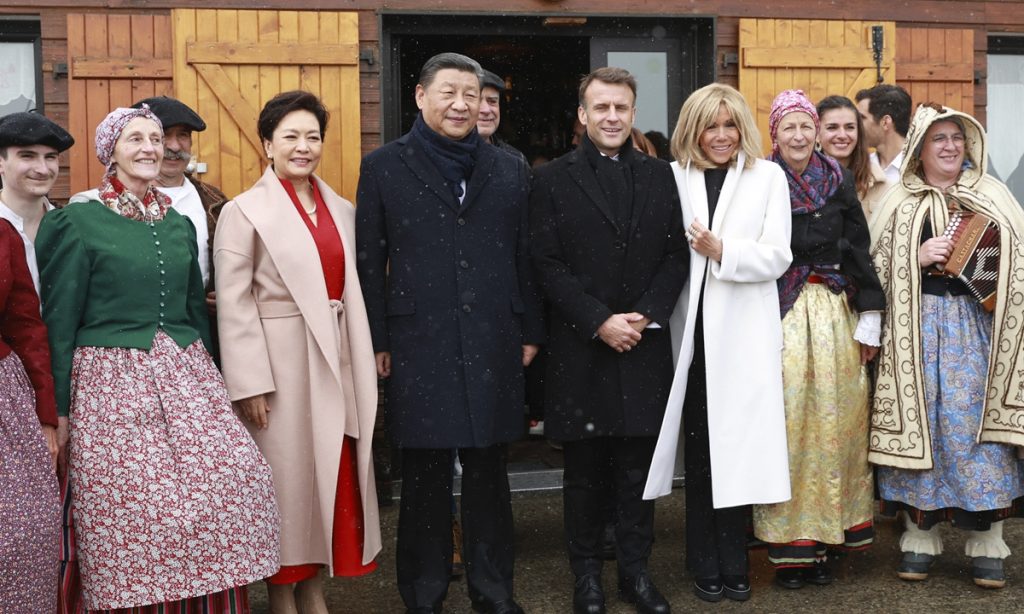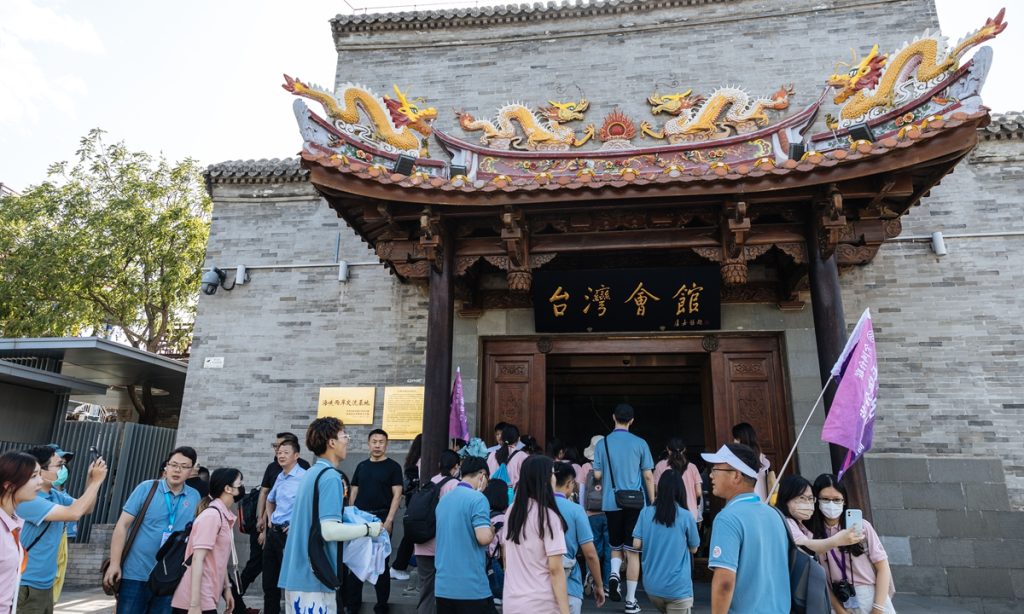Xi-Macron Pyrenees meeting adds momentum to relations

Chinese President Xi Jinping arrived in Tarbes, Hautes-Pyrenees Department of France on Tuesday, as part of his state visit to the European country. Xi and his wife Peng Liyuan were welcomed by French President Emmanuel Macron and his wife, Brigitte Macron, at the airport.
Nearly 300 overseas Chinese from southern French cities such as Toulouse, Lyon and Cannes, holding Chinese and French national flags, welcomed Xi at Tarbes airport.
The Pyrenees is the birthplace of Macron's maternal grandmother, who was from the Pyrenean town of Bagnères-de-Bigorre. In his childhood, the French president commonly visited the town to see his grandmother.
Xi and Macron - together with their wives - visited a mountain restaurant. Before lunch, they watched a traditional folk dance performance and took a picture together, media reported.
"Arranging a meeting in the Pyrenees shows that President Macron attaches great importance to the effect of head-of-state diplomacy on elevating China-France relations. He also hopes that his personal relationship will allow the two sides to discuss global governance issues, bilateral issues and the regional situation in a more relaxing manner," Dong Yifan, a research fellow at the Institute of European Studies, China Institutes of Contemporary International Relations, told the Global Times.
A new climax in high-level exchanges
The talks in the Pyrenees are reminiscent of the scenario in April 2023 when the Chinese and French top leaders met for informal talks in Guangzhou, capital of South China's Guangdong Province. The two leaders strolled through the Pine Garden close to Baiyun Mountain, chatting and stopping at times to enjoy the unique scenery of the southern Chinese garden. They had tea by the water, enjoying the view and discussing the past and present. Xi and Macron listened to the guqin (Chinese zither) melody "High Mountain and Flowing Water" at Baiyun Hall. Xi then invited Macron to dinner.
The similar interaction between the Chinese and French leaders can also date back to 2019 when in the French city of Nice in March, Macron received Xi at Villa Kerylos, a century-old house overlooking the Mediterranean and seen as a microcosm reflecting European civilization.
Later that year, in November, President Xi and his wife Peng Liyuan met with Macron and his wife Brigitte Macron in the Yuyuan Garden in Shanghai. The two couples walked in the garden and enjoyed the unique night scape.
Song Luzheng, a Chinese scholar residing in France and a research fellow at the China Institute of Fudan University, believes that arranging a meeting in the Pyrenees intends to show that the two leaders have broad visions and mind-sets to see things from a global perspective, as there is a Chinese saying, "stand tall and see far."
"Mutual trust and mutual understanding between leaders can help the two countries to face up to common challenges and solve problems," Song told the Global Times, adding that he sees the Pyrenees meeting between Xi and Macron as a display of high-level mutual trust between the two countries.
Keeping momentum
Xi and Macron held talks at the Elysee Palace on Monday. President Xi said that the two sides should stay committed to the spirit that guided the establishment of their diplomatic ties, namely, independence, mutual understanding, long-term vision and mutual benefit, and enrich it with new features of the new era.
The two sides should continue to understand each other, jointly promote harmonious coexistence in a colorful world, stick to taking a long view and work together for an equal and orderly multipolar world, he said.
China is willing to maintain strategic communication with France, respect each other's core interests, consolidate the strategic stability of bilateral relations, tap the vast potential of mutually beneficial cooperation and facilitate growth and balance in bilateral trade, Xi said.
Macron said that France and China, through mutual respect, a long-term perspective and strengthened cooperation, will play an important and positive role in addressing global challenges and opposing any logic of bloc confrontation.
France would like to have closer economic ties and multilateral communication and collaboration with China, and work for more outcomes in the France-China strategic partnership, he said.
At the joint meeting with the press with Macron after their talks, President Xi said that the two sides have agreed on consolidating the strategic stability of bilateral relations, exploring the great potential for mutually beneficial cooperation, accelerating people-to-people exchanges and building greater consensus on global cooperation.
Pierre Picquart, an expert in geopolitics and human geography from the University of Paris-VIII, told the Global Times that despite certain differences between China and France, maintaining high-level dialogue between the two sides is of paramount importance.
"Preserving this high-level dialogue is essential to promoting cooperation on critical issues, thereby contributing to regional and global stability," said Picquart.
Xi left France and headed for Serbia on Tuesday evening local time.


